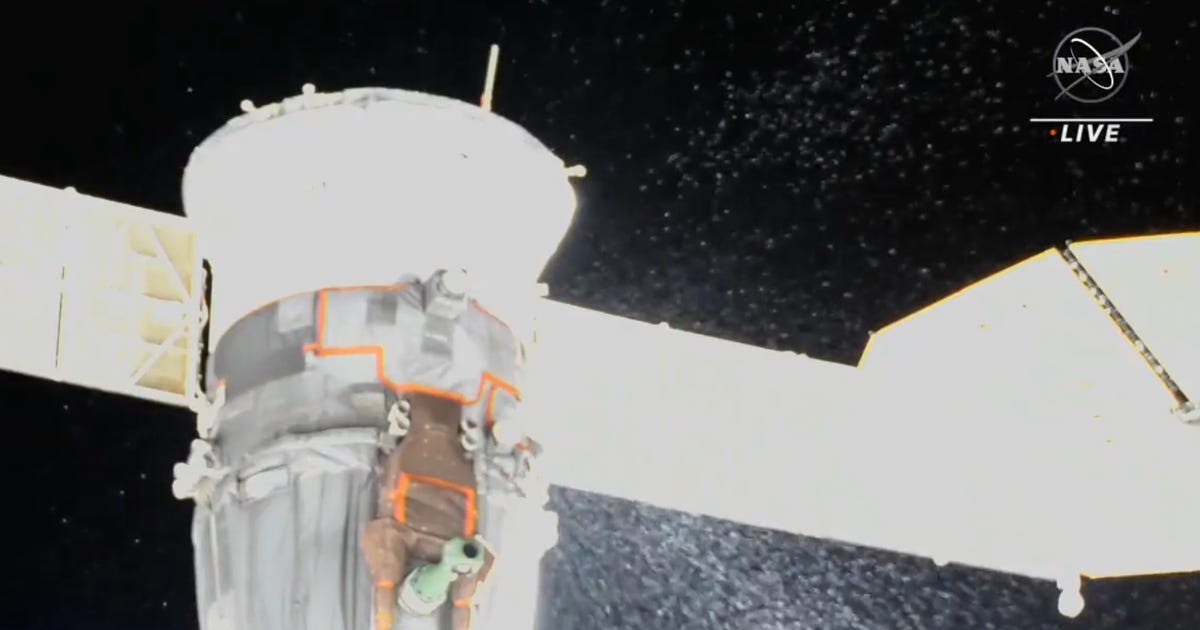
An external cooling loop on the Soyuz spacecraft, attached to the Earth-facing side of the International Space Station, may have been hit by a tiny meteorite, causing coolant to leak into space. The leak, discovered on Wednesday evening, forced a planned spacewalk by Russian cosmonauts Sergey Prokopyev and Dmitri Petelin to be canceled, according to NASA.
The spacewalk was scheduled to take place at 6 p.m. PT to move a heat-dissipating radiator from the Rassvet module, where the Soyuz is docked, to the recently installed Nauka multi-purpose laboratory module, but a stream of particles was visible in the vision of the MS-22 Soyuz on a NASA livestream. The astronauts on board were not harmed and the space station is in good condition, NASA said in a tweet on Wednesday evening.
“Tonight’s spacewalk has been canceled because of an observed leak of what is believed to be a cooling substance,” Rob Navias, from NASA communications, said during the broadcast.
The spacecraft carried both Prokopyev and Petelin to the station on Sept. 21, along with NASA astronaut Frank Rubio, for the Soyuz MS-22 mission.
Navias said during the broadcast that the flakes were “indicative of a leak,” but the substance has not been confirmed. The leak was coincident with a drop in pressure, first detected around 4:45 p.m. PT, in one of the external cooling loops of the spacecraft. Experts at NASA and Roscosmos in Moscow are coordinating to examine the leak and will assess whether it has caused any damage to the integrity of the Soyuz spacecraft. The robotic Canadarm2 will be used to inspect the outside of the capsule.
According to the Associated Press, Russia’s director of crewed space flight, Sergei Krikalev, has suggested a meteorite strike may have caused the coolant leak.
Micrometeorites are a constant presence in space and are constantly bombarding the Earth. Even the James Webb Space Telescope has to contend with the tiny fragments of rock and dust. For the most part, they do little damage and both spacecraft and astronauts are protected by shielding or suits. However, if a micrometeorite hits a coolant pipe or radiator at just the right angle, it could result in a leak. There’s also the possibility that a rogue piece of space junk collided with the Soyuz capsule. Until a full inspection takes place, it’s impossible to know.
This is the second time the spacewalk to move the radiator has been canceled. Originally, the cosmonauts were scheduled to conduct their work on Nov. 25, but there was a problem with the water cooling loops in the cosmonaut’s suits. Another Russian spacewalk, scheduled for Dec. 21, has also been cancelled, but a US spacewalk is still on the cards for Dec. 19.
Updated Dec. 15: Additional details from NASA blog.
